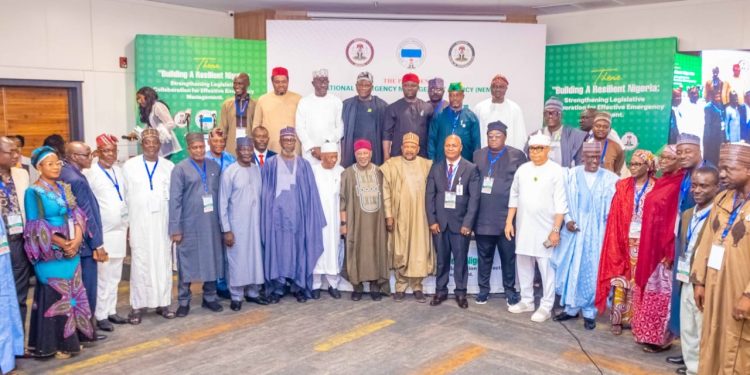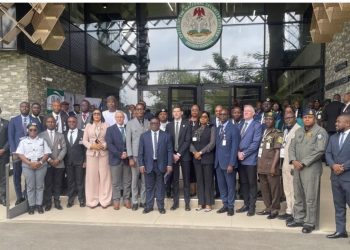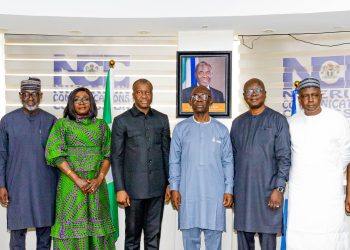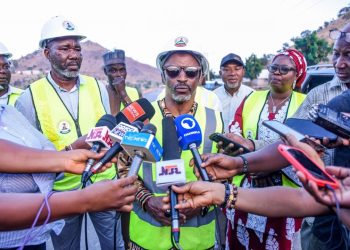By Nkechi Eze
In a renewed move to enhance Nigeria’s disaster preparedness and response capacity, the National Emergency Management Agency (NEMA) and members of the National Assembly Committees on emergency and disaster management have held a high-level strategic retreat focused on deepening legislative collaboration and strengthening institutional frameworks for effective emergency management across the country.
The retreat, themed “Building a Resilient Nigeria: Strengthening Legislative Collaboration for Effective Emergency Management,” brought together lawmakers from both chambers of the National Assembly and senior NEMA officials to deliberate on practical pathways for improving policy alignment, oversight, and resource mobilization in support of the Agency’s national mandate.
In her keynote address, the Director General of NEMA, Mrs. Zubaida Umar, underscored the importance of legislative support in building a robust and proactive emergency management system capable of addressing Nigeria’s growing disaster risks.
Represented by the Director of Planning, Research and Forecasting, Dr. Onimode Abdullahi Bandele, the NEMA boss noted that the strategic engagement was designed to “harmonize NEMA’s relationship with the National Assembly, strengthen alignment on policy direction, and secure legislative backing for sustainable investment, institutional reforms, and frameworks essential for national resilience.”
She observed that the increasing frequency, scale, and complexity of natural and human-induced disasters across Nigeria demand a multi-sectoral approach, driven by clear legislation, adequate funding, and strong political will. According to her, collaboration with the legislature remains central to empowering NEMA to effectively deliver on its statutory responsibilities, particularly in proactive disaster prevention, community resilience, and early warning systems.
Mrs. Umar emphasized that the Agency’s vision of a resilient Nigeria can only be achieved through shared commitment between the executive and legislative arms of government. “The legislature is a key partner in driving the reforms, funding, and oversight mechanisms that will make emergency management in Nigeria more responsive, modern, and sustainable,” she stated.
In his remarks, the Chairman of the Senate Committee on Special Duties, Senator Kaka Shehu Lawan, represented by Senator Abdul Ningi, commended NEMA for organizing what he described as a timely and strategic forum for policy dialogue between the Agency and the National Assembly. He reaffirmed the legislature’s commitment to strengthening Nigeria’s emergency management architecture through sound legislation and adequate resource allocation.
He noted that the rising frequency and severity of disasters from flooding and building collapses to communal crises and environmental degradation, call for robust coordination and legislative responsiveness. “Protecting lives, livelihoods, and critical infrastructure requires strong laws, effective oversight, and timely budgetary intervention,” he said.
Similarly, the Chairman of the House Committee on Emergency and Disaster Management, Rt. Hon. Joseph Bassey, highlighted key challenges affecting disaster response and management in the country, including inadequate funding, shortage of modern equipment, and limited training for first responders.
He stressed that NEMA’s responsibilities go far beyond relief distribution, urging for increased budgetary prioritization and comprehensive institutional reforms that would enable the Agency to respond more effectively to emerging disasters. “NEMA is not only about relief. There are critical funding and equipment needs that must be met to build a professional, well-resourced system capable of protecting lives and livelihoods,” Hon. Bassey stated.
He also called for the timely release of appropriated funds and the establishment of innovative financing mechanisms to enhance preparedness, mitigate risks, and strengthen response systems at the federal, state, and community levels.
The retreat also featured a panel discussion titled “Repositioning Nigeria’s Emergency Management Framework: The Role of the National Assembly,” where participants underscored the need for a more coherent legislative and policy environment to support national disaster management efforts.
Panelists commended NEMA for convening the platform and urged the National Assembly Committees to deepen institutional collaboration, enhance oversight, eliminate legal bottlenecks, and scale up investments in disaster-risk reduction, emergency-response infrastructure, and community resilience nationwide.
The strategic engagement between NEMA and the National Assembly is expected to yield a shared roadmap that will redefine the country’s emergency management framework, strengthen early warning systems, and ensure that Nigeria builds a resilient, prepared, and responsive society capable of confronting the challenges of the future.
















